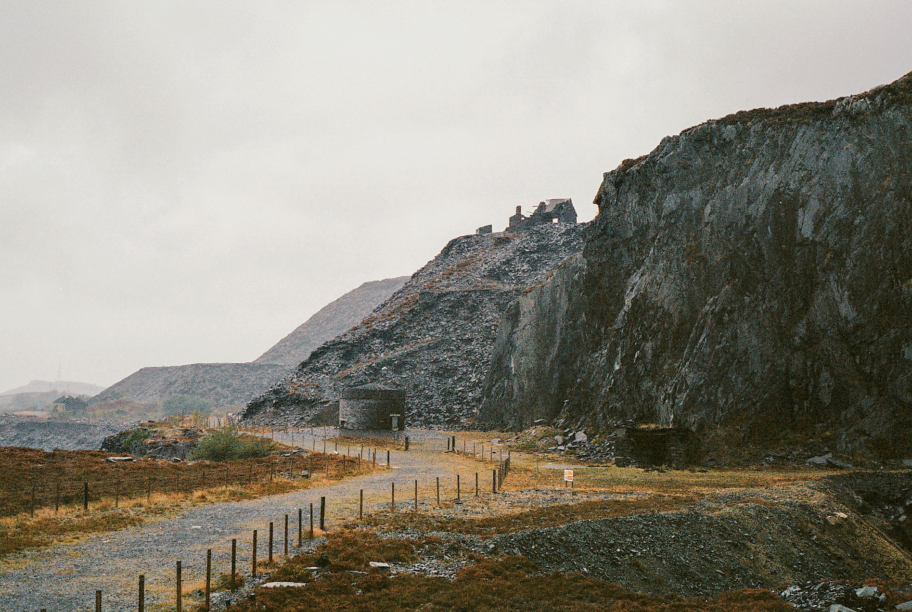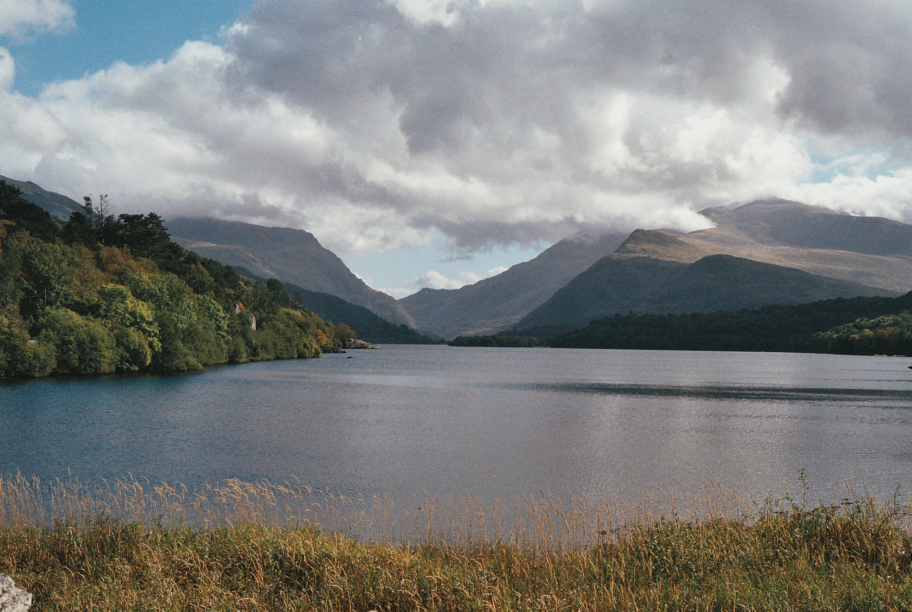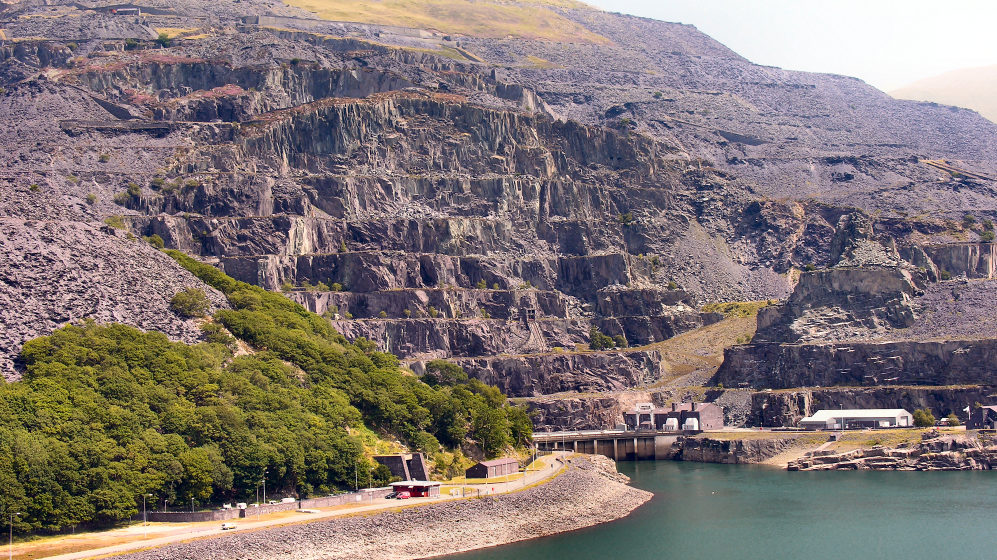Snowdonia National Park, one of the UK’s most spectacular wilderness areas, is home to otters, osprey, polecats and one gigantic battery. 19th century quarrymen excavated corridors and caves here, in the mountain called Elidir, and in the 1970s engineers enlarged these and popped a hydroelectric-pumped storage plant inside. When electricity is cheap and plentiful, water is pumped up to Marchwyn Mawr, a reservoir near the mountain’s peak; at night, water pours out of Marchwyn through the hydroelectric turbines and drains into Llyn Peris, a lake at the foot of the slopes. The process produces a surge of energy, cheaply and quickly, for moments when the national grid can be overwhelmed—say, after a football match or an episode of Coronation Street, when the whole country puts on the kettle for a cup of tea.
When we were courting, my husband took me on a date to tour the Dinorwig power plant, and that’s where I got the cup of tea line. In fact, this was the only use of the reserve power mentioned to us tourists. Promotional materials indicate that Dinorwig exists solely for the sake of a vast and unacknowledged national tea party.
 courtesy of the author
courtesy of the authorI’d been promised a weekend in a beautiful natural setting, and was a bit sore to find myself visiting some heavy industry. Also, the tour blew my developing-country brain. In South Africa, where I come from, we build power plants as part of a five-year industrial modernisation strategy, or, alternatively, just to keep the lights on. We also enforce a very strict separation between human civilisation and national parks, a distinction that rich countries are keen for Africa to sustain. It’s precisely because local habitants were forcibly removed, and agricultural and industrial development prevented, that African protected reserves are “the biodiversity sinks” of the world; this is also why international development funds, as well as international foundation money, is poured into the highly militarised policing of their boundaries.
In addition to the power plant at Dinorwig, inside Snowdonia National Park, there are several villages and a ‘significant amount of agriculture’, amounting to a population of 26,000 humans, and an untold number of sheep.
The hypocrisy is not the point. In the Selous Game Reserve, where there are around 15,000 elephants and countless birds, conservation baselines and outcomes are vastly different. Most British land has had its own history of dispossession and enclosure. Dinorwig was built inside the old mountain quarry with the specific purpose of minimising impact; wild heather spores were gathered for repropagating the slopes, and Arctic char were relocated.
The larger question is: What does “belong” in a national park? This turns out to be one of the most fiery debates in conservation. Donald Trump tried to portray the success of his administration’s conservation policy as all the once-forbidden things that he made happen in America’s beautiful wilderness spaces: hunting, fishing, and oil and gas exploration. In some African countries, militaries employ shoot-to-kill policies against suspected poachers—a ‘war’ in which the mounting casualties have included ambushed rangers, cattle herders, and migrants just looking for a way to cross borders. In Latin America, more shadowy forces, linked to corrupt officials and venal corporate interests, murder activists who try to keep loggers out of forests, miners out of rivers and commerce out of state-designated nature.
Or, consider the Rufiji Valley, in the Selous, where the Tanzanian government has begun construction on a hydroelectric dam that would more than double the country’s electricity supply. This project has been met with fierce criticism from international NGOs and European politicians, who decry the violation of a space ‘relatively undisturbed by human beings’. Friends, this message is not well received.
In The Conservation Revolution: Radical Ideas for Saving Nature Beyond the Anthropocene, authors Bram Buscher and Robert Fletcher offer a sort of anti-capitalist third way. Two major fault lines, they argue, cut through every important question in conservation in the ‘Anthropocene’. Firstly: is capitalism the solution or the problem? And secondly: are humans separate from nature, or a part of nature?
The inability of conservation advocates to navigate these questions is both a symptom and a source of conservation’s failure. For Buscher and Fletcher, capitalism is quite clearly the problem; as to the second question, some acknowledgement of separation is required in order to make sense of our current predicament. This approach resists both Trumpian exploitation and armed ‘neoprotectionism’—it might mean, for example, more Dinorwigs in Tanzania, and less space for European livestock farms outside of protected areas. The authors characterize their views as (literally) ‘convivial’; humanity and the rest of nature have to find a better way to ‘con vivere’ (to live with).
 courtesy of the author
courtesy of the authorIt wasn’t the worst date ever, then, the minibus through Dinorwig. Years later, here’s me, agreeing with George Monbiot that the UK’s farm landscapes are ‘sheep-scraped misery’, and bucolic scenes are ecological devastation. But then also marvelling at the ingenuity and—in some ways, the sensitivity—of Dinorwig. Puzzling through the problems of co-existence, over a cup of tea.





